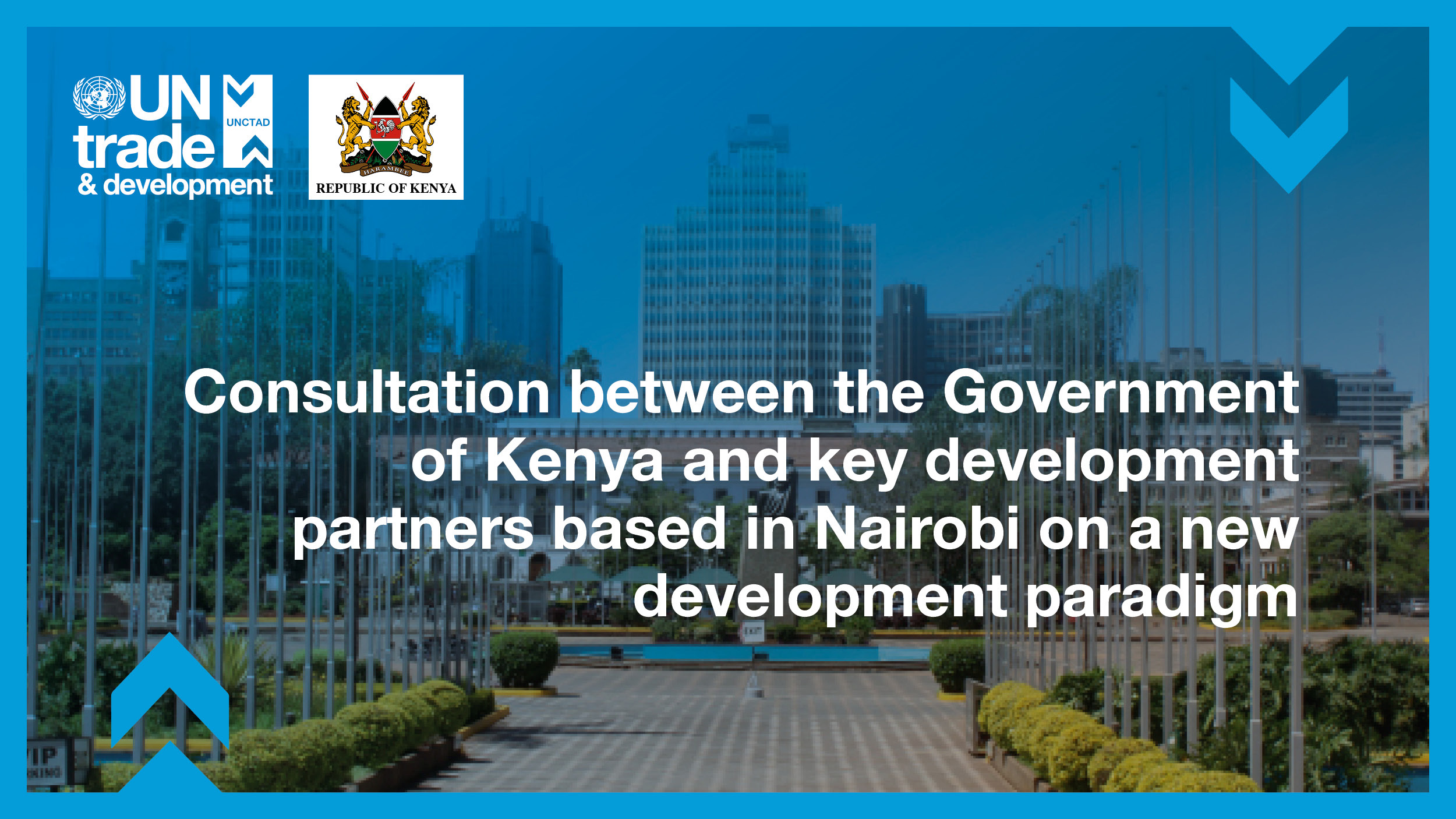The consultation was a follow-up to the high-level workshops held in May and August 2023 in Nairobi to validate Kenya’s National Productive Capacities Gap Assessment (NPCGA) and the Holistic Productive Capacities Development Programme (HPCDP). It was intended to seek financial means for the implementation of HPCDP and the Action Plan agreed between the Government of Kenya and UNCTAD.
The keynote address of the Prime Cabinet Secretary and three key ministers highlighted Kenya’s improved macroeconomic environment and the strong rebound of the economy since the COVID-19 pandemic. However, all the speakers underlined the formidable challenges facing the country such as the need for economic diversification, industrialization, value addition, infrastructure development, and digital transformation.
Kenya’s Holistic Productive Capacities Development Programmes is designed to address the gaps and limitations articulated in the country's NPCGA, including those highlighted by senior government officials. The Holistic Programme is particularly viewed as a game-changer, marking a new opening in development-focused efforts, which are comprehensive, long-term, and multidimensional. The aim is to strengthen the underlying framework for development by fortifying and, where necessary, establishing the enabling economic inputs and systems needed to connect public and private sectors for job creation, trade, growth, and inclusive development.
Senior government officials in their statements urged donors to provide predictable and sustainable financing for the implementation of the HPCDP. The Programme is expected to be implemented over a period of ten years (2025-203) with a rolling fund of US$20 million.
The Prime Cabinet Secretary, Hon. Musalia Mudavadi, E.G.H, in his keynote address, stressed that the HPCDP aligns with the Kenyan Vision 2030 and the country’s medium-term plan. “With five interlinked pillars: economic diversification and industrialization, infrastructure and the natural environment, ICT for digital transformation, private sector development and skills formation, the Holistic Programme offers a comprehensive approach to fostering structural transformation in Kenya” he said. He also applauded the process, which is consultative, inclusive, and driven by Kenyan institutions.
Implementation of the Holistic Productive Capacities Development Programme for Kenya
Development policies need to be adjusted and adapted to changing circumstances: Policymakers in developing countries need to implement policies and strategies to address socioeconomic challenges and improve the standards of living of their citizens. This requires putting in place holistic and integrated programmes that enable the tapping of comparative advantages and addressing key binding constraints to development. This means that the new holistic approach must provide a durable foundation to support the implementation of national visions and development plans to transform economies and build resilience to unforeseen shocks.
Holistic Productive Capacities Development Programmes (HPCDPs) provide this opportunity, marking a new opening in development-focused efforts, which are comprehensive and multidimensional. They aim to strengthen the underlying framework for development by fortifying and, where necessary, establishing the enabling economic inputs and systems needed to connect public and private sectors for job creation, trade, growth and inclusive development.
The focus of the consultations will be on the implementation of the Programme to support Kenya's development agenda. The consultations will be centered on a round-table dialogue between Kenyan institutions and strategic partners of Kenya on the implementation of the HPCDP.

